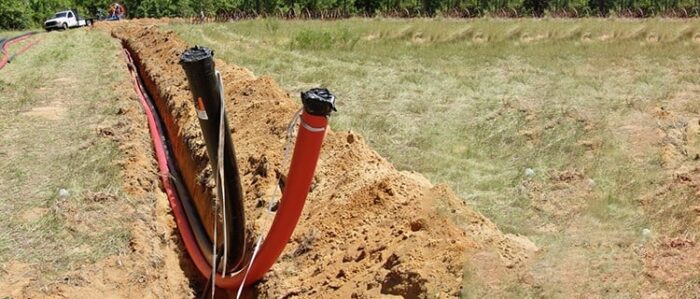The Law on Property Relations regulates the determination of compensation for servitude rights. Real servitude is the right of the owner of one immovable property (dominant estate) to perform certain actions on the immovable property of another owner (servient estate).
Cases in which we conduct servitude rights determination:
Necessary passage
The owner of the immovable property without access to a public road or accessible only by excessive detour (enclosed land, enclave) has the right to request, upon payment of compensation, passage across another’s land (necessary passage).
The necessary passage can be established as the right of passage for pedestrians, vehicles, agricultural machinery, etc.
Installation of utilities
The landowner is obliged, upon payment of compensation, to allow the installation of utilities (water pipes, sewer pipes, gas pipelines, electrical and telephone cables, poles, wires, etc.) on their land if installing them elsewhere would incur disproportionate costs.
The landowner has the right to demand that the utility owner purchase that part if the utility significantly reduces the land’s utility value.
Statutory servitudes in the public interest
Installation of utilities and other facilities (electrical, sewer, gas, water, heating, telecommunications, etc.) on another’s immovable property without the owner’s consent may be permissible in the public interest according to the law.
Installation of antennas
The user of radio receivers has the right to install an antenna on a neighboring building if necessary for receiving radio broadcasts and if it does not interfere with the residents’ reception of radio broadcasts.
The valuation process involves providing expert opinion on the value and determining the value of the property based on a systematic approach, which includes the following activities:
- Physical and legal identification of the property being valued (subject of valuation);
- Identification of property rights being valued (documentation);
- Determining the purpose of the valuation (valuation purpose);
- Determining the effective date of the valuation (timeframe for the valuation);
- Collecting and analyzing data required for the chosen approach and valuation methods;
- Selecting and applying valuation methods;
- Drawing conclusions on value and preparing a report.
Documentation required for determining servitude rights:
- Deed of Real Estate
- Data on cadastral municipality (CM)
- Parcel number of the subject of valuation
- Sketch of the proposed servitude issued by an authorized surveying organization

